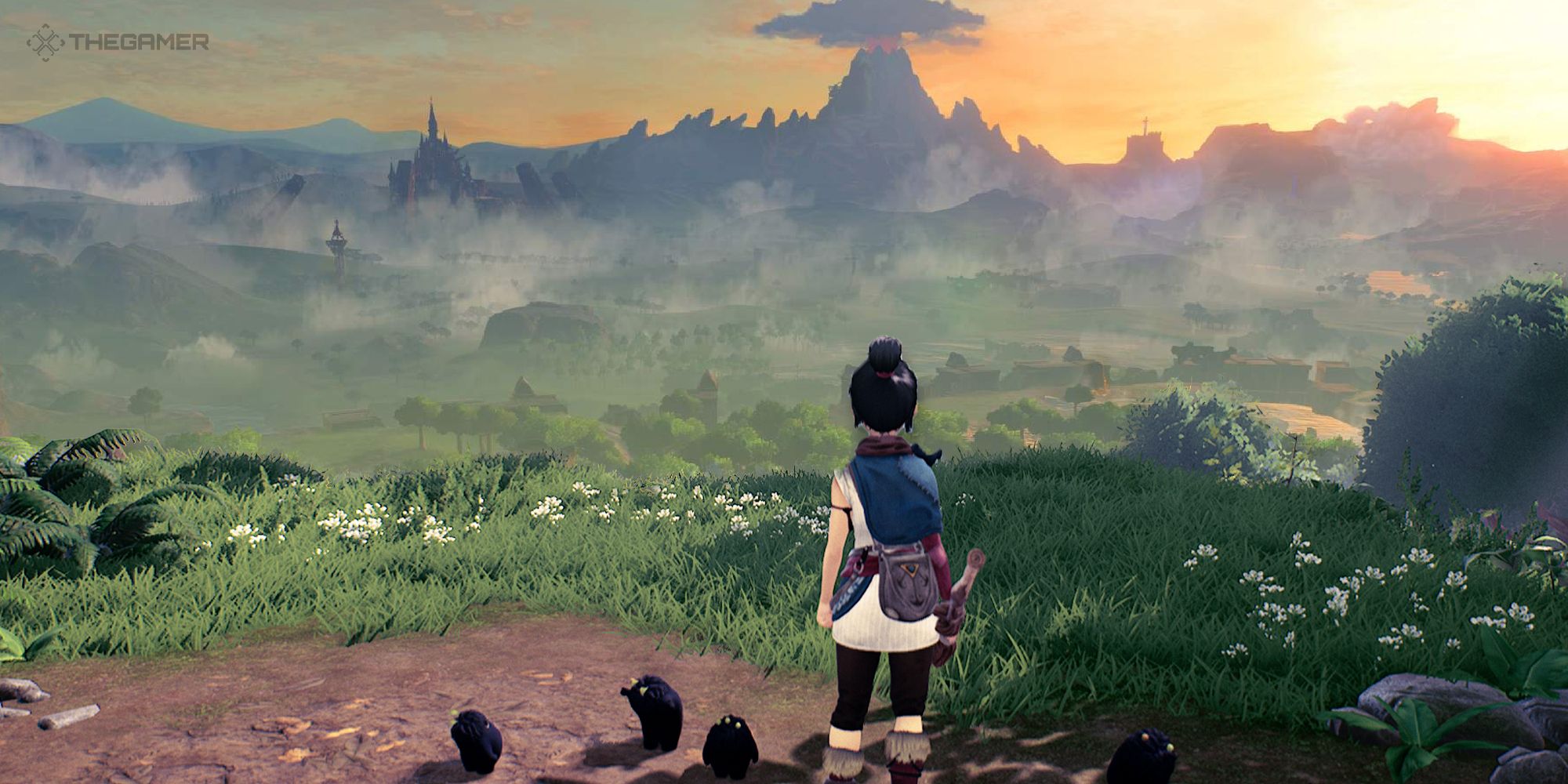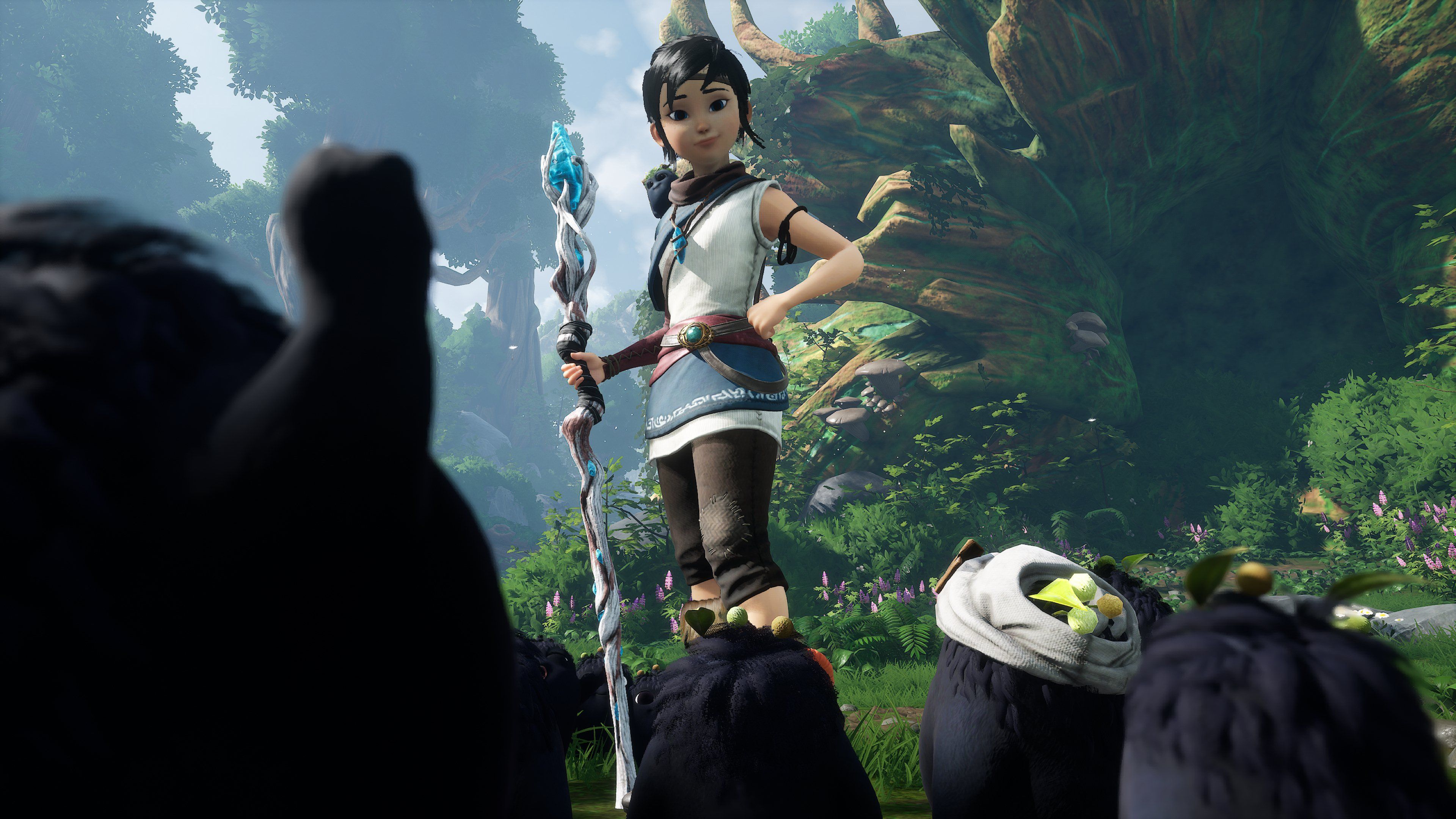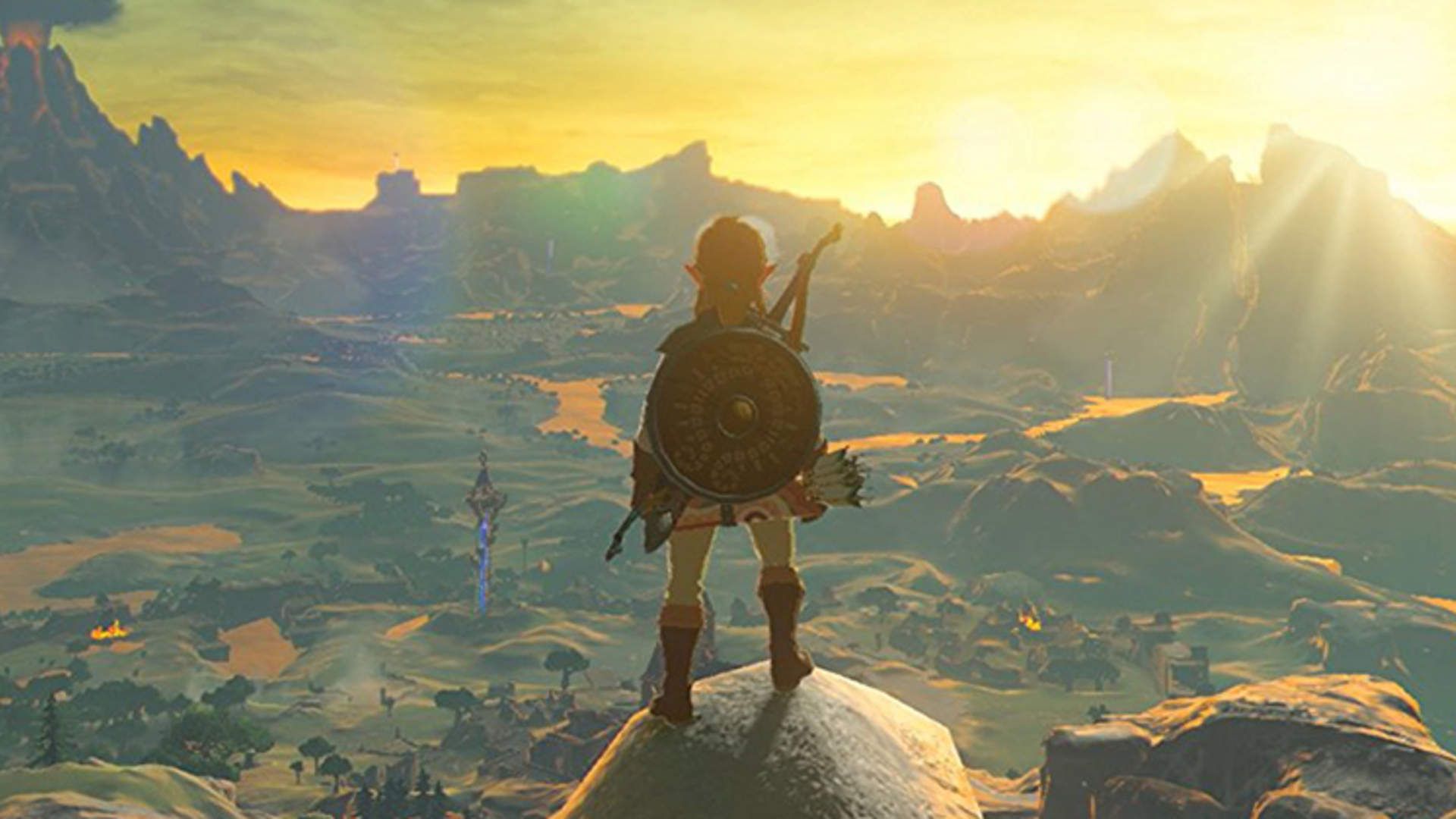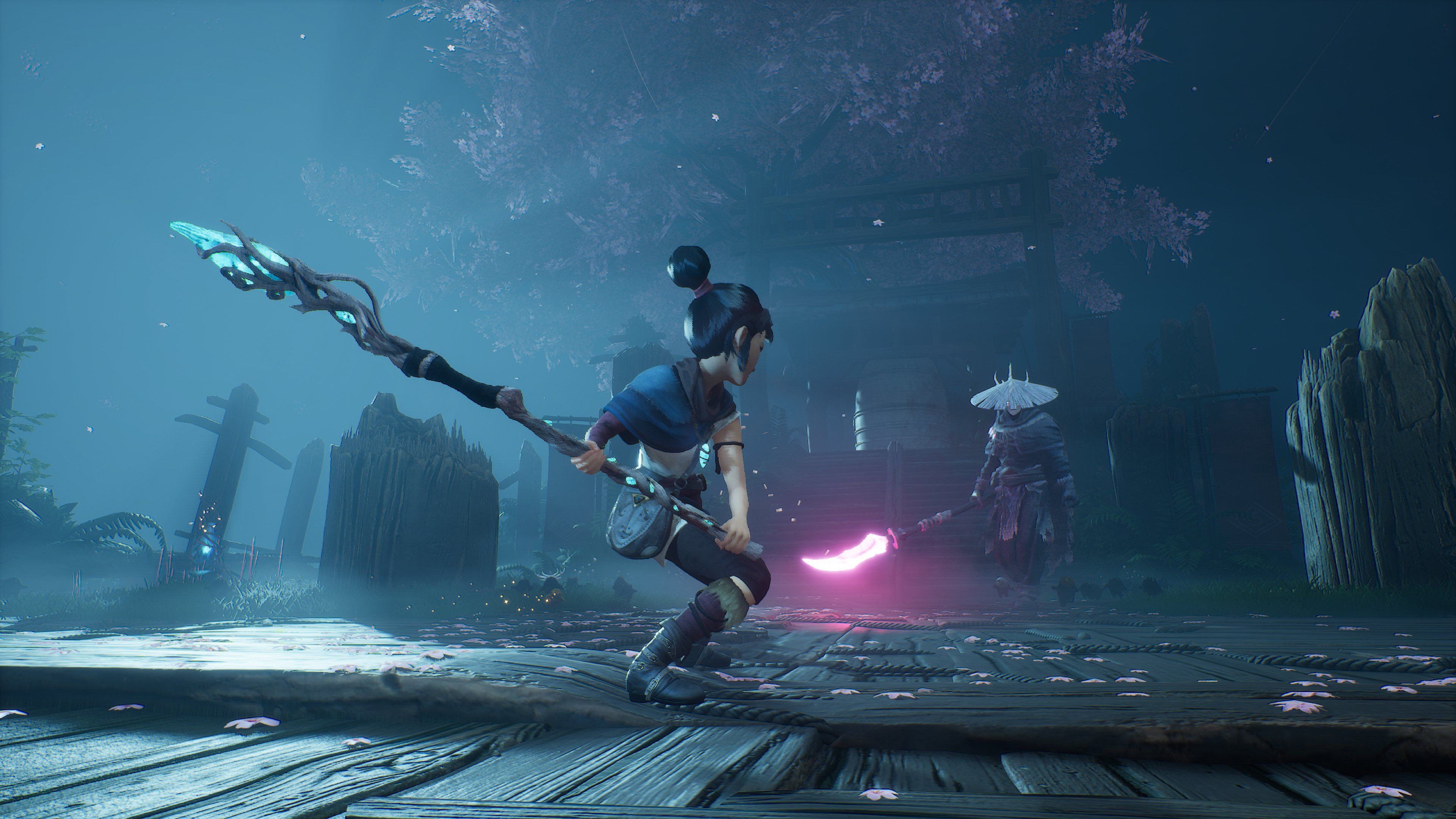You will see a lot of comparisons between Kena: Bridge of Spirits and Zelda over the next few days. Both games have a magical tone with expansive worlds to explore, and both feature cuddly creatures, flashes of darkness, and similar combat and puzzles. Playing through Kena made me reevaluate my strange relationship with The Legend of Zelda: Breath of the Wild, and think once again about what might have been.
Kena is not as good as Breath of the Wild, not in any technical sense. In my review, I gave it four stars, noting that while polished, many of its gaming conventions feel dated. It’s closer to GameCube-era Zelda in that regard - there’s swimming but no diving, climbing is limited to clearly marked locations, and combat only becomes complex towards the end and feels far too basic for much of the experience, lacking the depth you’d expect from the genre. For a studio the size of Ember Labs, Kena looks especially gorgeous, and dated conventions aren’t a deal breaker - GameCube-era Zelda still holds up, after all.
This is where my odd relationship with Breath of the Wild comes into it. I’ve tried to play it twice, stopping once after ten hours and again after around 30. There’s a lot of the game I haven’t seen, but I’ve experienced enough of it to make my mind up.
I wrote an article a while ago titled ‘I Hope I Hate Breath Of The Wild 2’. And I do. I don’t ‘get’ Breath of the Wild, whatever there is to get about it, but I understand that lots of people do. We’re already seeing its influence in the industry too - Genshin Impact, Immortals Fenyx Rising, Horizon Forbidden West, and Sable (amongst others) all clearly borrow from it. I’m not especially sure Kena does, but we’ll get to that soon.
I didn’t like Breath of the Wild, but I understand how important it was for the open-world adventure genre’s next steps. If BOTW2 is anything like the first game, I won’t enjoy it - but it will also provide new ways for one of gaming’s most popular and enjoyable genres to grow. The BOTW-ness of Immortals was my favourite part of the game, so I can still reap the benefits even if the base game itself isn’t for me. Despite all of BOTW’s importance, it still feels a little sour that Zelda’s giant leap forward left me behind. Worse still, Kena reminds me of what could have been.
Again, Breath of the Wild is a better game than Kena. Subjectively, I’d rather play Kena, but objectively, Breath of the Wild has far more in-depth game design, fresher ideas, and gives more agency to the player. This goes above ‘what do you prefer?’ - one game revolutionised its genre and the industry at large, and the other is kinda fun. There’s no contest, even if I’d much rather go and play Kena. But the two games feel so close to each other their fingertips are almost grazing, and Kena feels like what could have been.
I wish I loved Breath of the Wild. I know I said I hope I hate BOTW2, but that’s because what BOTW is is already set in stone. It has established a set of conventions for itself that I just don’t vibe with. But I understand their importance, so I hope they stay. If BOTW had been more tailored to me personally - as all games, everywhere, absolutely should be - it might have looked like Kena, and it’s interesting to think on how a more Kena-ish Breath of the Wild might have looked.
I know Breath of the Wild is all about negative space, but that’s part of the reason I can’t connect with it. I don’t want to listen to the notes the jazz violinist isn’t playing. Breath of the Wild takes a largely empty world and makes it feel full. Kena, with lush terrains but poorly developed characters, takes a busy world and makes it feel empty. Kena clearly borrows from the classic Zelda magic, and that’s a part of Zelda’s own legacy BOTW cuts out completely.
BOTW also added a new sense of depth to Zelda’s combat. Part of this was through weapon durability, but please, let’s not have that conversation again. Leaving the durability issue aside, BOTW moved away from the standard sword, better sword, Master Sword rhythm of Zelda to open the game up. In doing so though, it lost the closeness and arcade-style battling of earlier titles. Kena, with staff, bow, bombs, and dash, feels like a comfortable middle ground between the two. Better yet, Kena’s enemies grow more complex as her arsenal does, so you get more chances to use all of Kena’s unique attacks. Nothing that Kena does is especially new - unlike BOTW, it’s a game that borrows extensively - but this familiarity with the combat makes it easier to get to grips with. There’s less room for experimentation, but it feels like you understand Kena’s movements in a way that, after a combined 40 hours, I still didn’t quite understand Link’s.
In short, Kena: Bridge of Spirits is the Breath of the Wild I wish Nintendo made, but I’m glad it didn’t. It feels exactly like I’d expect the next step in Zelda games to be after Skyward Sword, A Link Between Worlds, and Tri-Force Heroes - but I know BOTW was a far more important leap for the series and the industry itself. Ultimately, Kena: Bridge of Spirits just reminds me that one of the greatest games of all time isn’t for me, and I’m not sure how to feel about that.




